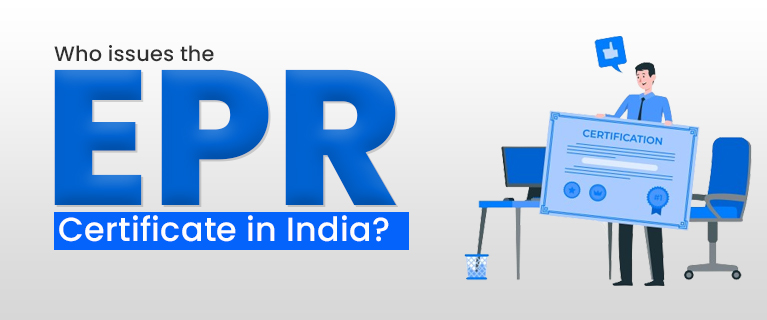A Comprehensive Guide on EPR Registration & Recycling Regulations
In recent years, as environmental concerns have reached unprecedented levels, nations across the globe are increasingly focusing on adopting sustainable practices to mitigate the adverse impacts of human activities on the planet. A pivotal aspect of this global movement is the implementation of Extended Producer Responsibility (EPR) registration and recycling regulations. These measures represent a paradigm shift in waste management strategies, aiming to transfer the burden of handling and disposing of waste from consumers and local authorities to the producers and manufacturers themselves.
The urgency of addressing environmental challenges has led policymakers to recognize the need for comprehensive and innovative approaches. Extended Producer Responsibility, as a concept, places the onus on those who introduce products into the market to take responsibility for the entire life cycle of their products, including their eventual disposal. This shift in perspective is not only a response to the growing waste crisis but also a proactive strategy to encourage sustainable production and consumption patterns.
EPR registration involves the mandatory registration of producers and manufacturers, requiring them to be accountable for the entire life cycle of their products. This encompasses not only the design and manufacturing phases but extends to the product's end-of-life management, including recycling and proper disposal. By placing this responsibility on the producers, nations aim to create a more circular economy where materials are reused, recycled, or repurposed, reducing the overall environmental impact.
Read also this -: How to Obtain an EPR Registration Number in India
The recycling regulations accompanying EPR further reinforce the commitment to sustainable practices. These regulations outline specific guidelines for the collection, sorting, and recycling of various materials, emphasizing the importance of minimizing waste sent to landfills. Producers are often required to meet specific recycling targets, fostering innovation in waste management technologies and processes. This, in turn, stimulates investment in eco-friendly solutions, creating a ripple effect throughout the supply chain.
One of the significant advantages of EPR and recycling regulations is the potential reduction in greenhouse gas emissions. Traditional waste management practices, such as landfilling, contribute to the release of methane, a potent greenhouse gas. By diverting waste from landfills through enhanced recycling efforts, nations can make substantial strides in mitigating climate change. Additionally, the promotion of sustainable practices aligns with international commitments to reduce carbon footprints and transition to more environmentally friendly economies.
Moreover, EPR Registration fosters a sense of corporate responsibility. Companies are compelled to rethink their production processes, opting for materials that are easier to recycle or exploring alternative packaging solutions. This not only minimizes the environmental impact of their operations but also enhances their public image as environmentally conscious entities. Consumers, increasingly aware of environmental issues, are likely to favour products from companies actively engaged in sustainable practices.
The implementation of EPR and recycling regulations is not without its challenges. Producers may face increased costs associated with redesigning products for recyclability and establishing efficient recycling infrastructure. However, these challenges are outweighed by the long-term benefits, including reduced environmental degradation, resource conservation, and economic sustainability.
In simple words, the adoption of Extended Producer Responsibility and recycling regulations marks a critical step in the global pursuit of sustainability. By placing the onus on producers to manage the entire life cycle of their products, nations are reshaping the landscape of waste management and fostering a culture of environmental responsibility. This shift not only addresses the immediate challenges posed by escalating environmental concerns but also lays the foundation for a more resilient and sustainable future.
Understanding EPR Registration:
Extended Producer Responsibility (EPR) is a policy approach that places the onus on product manufacturers to take responsibility for the entire lifecycle of their products, including their eventual disposal. EPR registration requires companies to register with regulatory bodies, demonstrating their commitment to managing the environmental impact of their products.
The registration process involves a comprehensive evaluation of a company's production and waste management practices. This includes an assessment of the environmental impact of their products, plans for recycling and disposal, and financial contributions to support recycling infrastructure.
Benefits of EPR Registration:
1. Reduced Environmental Footprint: EPR Registration encourages producers to design products with sustainability in mind, leading to reduced environmental impact throughout the product life cycle.
2. Promotion of Circular Economy: By incorporating recycling into the product lifecycle, EPR supports the concept of a circular economy, where materials are reused and recycled rather than disposed of after a single use.
3. Financial Incentives: EPR registration often comes with financial benefits for companies that actively engage in sustainable practices. This serves as an additional motivator for businesses to adopt environmentally responsible measures.
Recycling Regulations: In conjunction with EPR Registration, recycling regulations play a vital role in shaping sustainable waste management practices. These regulations are designed to standardize and streamline the recycling process, ensuring that materials are handled responsibly.
Read also this -: Behind The Scenes Of EPR Registration
Key Components of Recycling Regulations:
1. Mandatory Recycling Targets:
Recycling regulations typically establish specific targets for the recycling rates of different materials. Governments set these targets to ensure that a certain percentage of materials, such as paper, plastic, glass, and metals, are recycled rather than disposed of in landfills or incinerated. These targets act as measurable goals, encouraging businesses to adopt recycling practices and invest in technologies that facilitate the efficient recovery and processing of recyclable materials. By making recycling a mandatory requirement, authorities promote resource conservation, reduce environmental impact, and contribute to the broader goal of sustainable waste management.
2. Waste Separation Requirements:
Waste separation guidelines outlined in recycling regulations emphasize the importance of segregating different types of waste at the source, typically at households or businesses. This involves categorizing materials like paper, cardboard, plastics, glass, and metals separately from general or organic waste. By implementing effective waste separation practices, communities contribute to the efficiency of recycling processes. Separating recyclables at the source minimizes contamination, making it easier to process and recycle materials. It also streamlines collection efforts, reducing the cost and environmental impact associated with sorting mixed waste at later stages of the recycling chain. Waste separation is a fundamental step in fostering a culture of responsible waste management and promoting the recycling of valuable resources.
3. Prohibition of Hazardous Materials:
Recycling regulations often include measures to prohibit or restrict the use of hazardous materials in the manufacturing of products. This is crucial for safeguarding both the environment and public health. Hazardous materials, such as certain chemicals and heavy metals, can pose significant risks during the recycling process and may result in contamination if not handled properly. By enforcing restrictions on these materials, regulations aim to prevent pollution, reduce the potential harm to ecosystems, and protect workers involved in recycling operations. This component of recycling regulations reflects a commitment to sustainable manufacturing practices and ensures that recycled materials do not introduce harmful substances into new products. It also aligns with broader environmental goals by encouraging the adoption of safer alternatives and promoting the responsible use of materials throughout the product life cycle.
In summary, the key components of recycling regulations, including mandatory recycling targets, waste separation requirements, and the prohibition of hazardous materials, collectively form a comprehensive framework for promoting sustainable waste management practices. These measures address different stages of the recycling process, from setting goals for material recovery to ensuring the safe handling of materials throughout their life cycle. Through these regulatory mechanisms, governments aim to create a more circular and environmentally conscious approach to resource utilization and waste disposal.
Challenges and Criticisms:
While EPR registration and recycling regulations have garnered support for their environmental benefits, they are not without challenges. Some critics argue that the financial burden imposed on producers may lead to increased product costs, potentially impacting consumers. Additionally, ensuring compliance and enforcement of these regulations can be a complex task.
Global Initiatives and Success Stories:
Several countries have successfully implemented EPR registration and recycling regulations, showcasing the positive impact of these measures on the environment. For example, Germany has a well-established EPR system that has significantly increased recycling rates and reduced waste.
Read also this -: Register EPR Online for Plastic & E-Waste
Conclusion:
In the face of escalating environmental concerns, the adoption of EPR registration and recycling regulations emerges as a crucial step towards sustainable waste management. While challenges exist, the potential benefits, including reduced environmental impact, promotion of a circular economy, and financial incentives for businesses, highlight the importance of these measures. As more nations embrace the principles of extended producer responsibility and implement robust recycling regulations, the global community moves closer to achieving a more sustainable and eco-friendly future.










